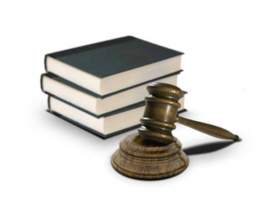
Chapter 13 Bankruptcy Rules

Chapter 13 Bankruptcy Background:
Chapter 13 Bankruptcy filings enable individuals—with regular incomes—to create alleviation plans to repay their outstanding debts. Under this filing, a debtor will propose a repayment plan to provide installments to creditors for a period of three to five years.
Chapter 13 Bankruptcy Rules:
In order to file for a Chapter 13 Bankruptcy, a debtor must abide by all the rules mandated by the United States’ Bankruptcy Code. The first set of Chapter 13 Bankruptcy rules serve as a screening; these eligibility requirements will either permit or impede a debtor from the filing. The following is a list of Chapter 13 Bankruptcy rules that must be satisfied to initiate the filing process:
• A Chapter 13 Bankruptcy filing begins when a financially insolvent individual files a petition with the bankruptcy court that presides over the area where the debtor maintains residency—these Chapter 13 Bankruptcy rules are regarded as the location prerequisite.
• When filing, the debtor must submit the following documents with the respective court:
o Schedules of all assets and liabilities
o A schedule of the debtor’s income and expenditures
o A schedule of the debtor’s unexpired leases and executory contracts
o A list of all financial affairs—this list must be provided as a statement
o The debtor must also file a certificate that documents the person’s participation in credit counseling programs. If the individual—with the aid of the licensed credit agent—created a debt repayment plan, the initiative must be submitted to the court. Furthermore, Chapter 13 Bankruptcy rules state that the debtor must also file a statement to reveal their monthly net income. This statement is required to reveal fluctuations in income or future expenses that may arise after the filing.
o All of this information—along with the debtor’s most recent tax return—must be filed with a Chapter 13 trustee before the proceeding takes place. After submission of the courts fees ($235 case filing fee and a $39 administration fee), Chapter 13 Bankruptcy rules state the following:
• In order to satisfy all of the Chapter 13 Bankruptcy rules for filing, the debtor must complete the Bankruptcy Forms, a statement of financial affairs/schedules and provide the court with a list of all respective creditors and the correlating amounts owed
• Chapter 13 bankruptcy rules also state that the debtor must elucidate the amount, frequency and source of the debtor’s income
• Chapter 13 Bankruptcy rules state that the debtor must list all of his or her property and list of all monthly expenses incurred, including monies spent on clothing, shelter, utilities, taxes, transportation, food etc.
• Married individuals are required—according to Chapter 13 Bankruptcy rules—to gather the aforementioned information from their spouse regardless of whether they are filing individual or joint petitions. If only one spouse files, the income and expenses of the non-filing spouse is required according to Chapter 13 Bankruptcy rules.
NEXT: Chapter 13 Bankruptcy Plan


















